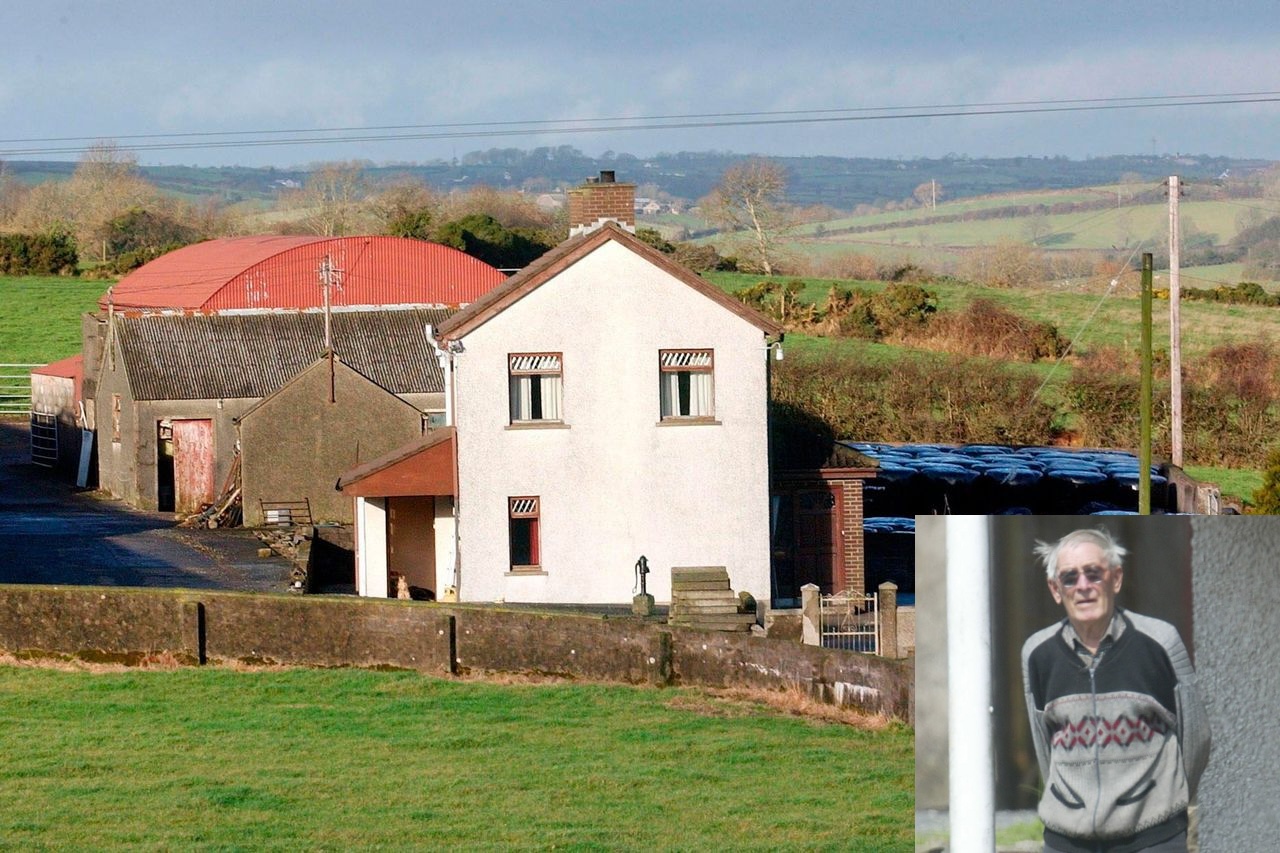
Imported paramilitary weapons stored by a former RUC reservist were removed ahead of a raid after his RUC colleagues tipped him off about it in advance, the High Court has heard.
James Mitchell (pictured, inset) was phoned just before his land was searched for a deadly shipment smuggled into the North in 1988.
The details feature in an ‘agreed summary’ of classified information held by the PSNI and the British Ministry of Defence (MoD) on the importation for loyalists of hundreds of rifles, pistols and grenades from South Africa.
Details of the shipment, which is alleged to have involved high-level collusion between several loyalist groups and the British military, are being withheld in order to protect Britain’s ‘national security’.
Patrick Frizzell and Margaret Lundy are both suing the PSNI (formerly RUC) and the British MoD over their role in allowing the arsenal of weapons to be brought into Ireland and distributed among loyalist groups for use in a series of killings.
Brian Frizzell was one of three Catholics shot dead at a mobile shop in Craigavon in 1991. Alan Lundy was gunned down by a UDA unit at the west Belfast home of Sinn Féin representative Alex Maskey in May 1993.
Lawyers for their family members allege the Crown forces knew about the arrival of the arms shipment but did nothing to intercept it.
It is also alleged that local RUC men were not informed about intelligence that the weapons were being stored at Mitchell’s farm in January 1988.
Mitchell, a former RUC reserve officer who died in 2008, provided a base and storage depot for the notorious ‘Glenanne gang’ of some 40 Crown Force members who conducted a campaign of sectarian terror shootings and bombings across the 1970s.
With writs lodged in connection with a number of other killings containing allegations about the imported guns, Justice Humphreys set out the ‘gist’ of the information which was allowed to be made public.
The court heard how the paramilitary UDA and UVF and ‘Ulster Clubs’ brought weapons from South Africa in 1987.
At least some of the weapons, including a powerful British-made missile system, was provided by the apartheid South Africa government of the era.
Based on estimates, the total shipment included 200 rifles, 100 pistols, 24 boxes of grenades, grenade launchers and 48 boxes of ammunition.
MI5, which was aware of the consignment, researched shipping routes for the delivery.
Senior UDA figures learned in January 1988 that a container full of arms had cleared customs and was in the hands of an intermediary and was being stored at a farm in County Armagh.
The RUC received information that the weapons had been unloaded and hidden at Mitchell’s farm, where they were to be divided out and collected by the various loyalist organisations, but there was a last-minute change to those arrangements.
Reading from the ‘agreed summary’, Justice Humphreys said: “Police then went to search Mitchell’s farm, but Mitchell was warned that police were en route and the remainder of the weapons were removed to a safe location.
“In 2016, police received information that a police officer made a phone call to Mitchell’s farm before a police search.”
Following disclosure of the gist, the plaintiffs’ solicitor Kevin Winters said: “This is a very important ruling with far-reaching significance for many of our clients in other linked cases.”
![[Irish Republican News]](https://republican-news.org/graphics/title_gifs/rn.gif)
![[Irish Republican News]](https://republican-news.org/graphics/title_gifs/harp.gif)

